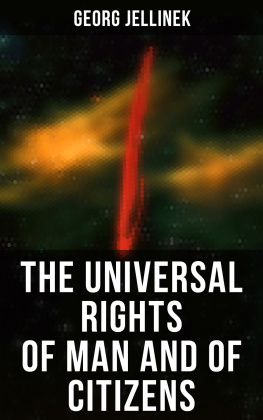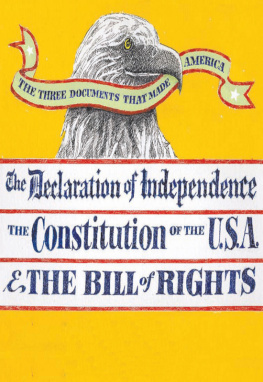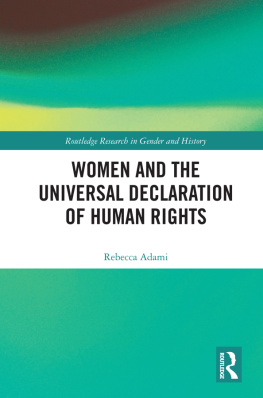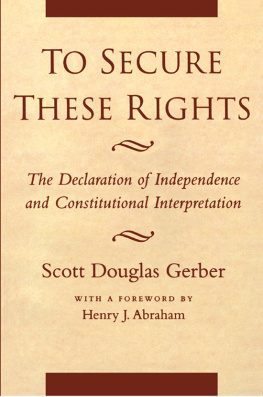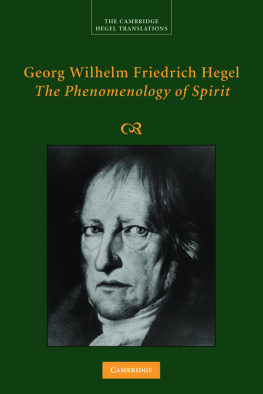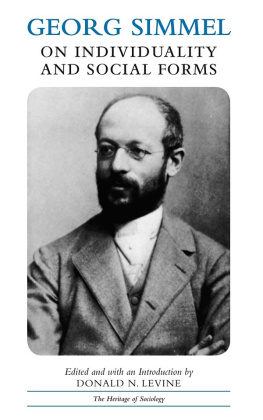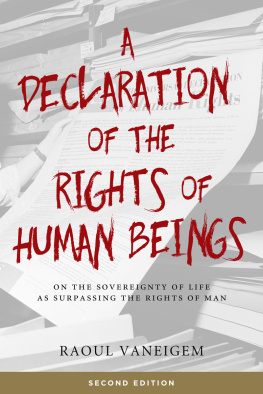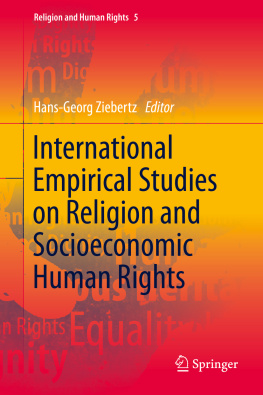CHAPTER I.
THE FRENCH DECLARATION OF RIGHTS OF AUGUST 26, 1789, AND ITS SIGNIFICANCE.
The declaration of "the rights of man and of citizens" by the French Constituent Assembly on August 26, 1789, is one of the most significant events of the French Revolution. It has been criticised from different points of view with directly opposing results. The political scientist and the historian, thoroughly appreciating its importance, have repeatedly come to the conclusion that the Declaration had no small part in the anarchy with which France was visited soon after the storming of the Bastille. They point to its abstract phrases as ambiguous and therefore dangerous, and as void of all political reality and practical statesmanship. Its empty pathos, they say, confused the mind, disturbed calm judgment, aroused passions, and stifled the sense of dutyfor of duty there is not a word. Others, on the contrary, and especially Frenchmen, have exalted it as a revelation in the world's history, as a catechism of the "principles of 1789" which form the eternal foundation of the state's structure, and they have glorified it as the most precious gift that France has given to mankind.
Less regarded than its historical and political significance is the importance of this document in the history of law, an importance which continues even to the present day. Whatever may be the value or worthlessness of its general phrases, it is under the influence of this document that the conception of the public rights of the individual has developed in the positive law of the states of the European continent. Until it appeared public law literature recognized the rights of heads of states, the privileges of class, and the privileges of individuals or special corporations, but the general rights of subjects were to be found essentially only in the form of duties on the part of the state, not in the form of definite legal claims of the individual. The Declaration of the Rights of Man for the first time originated in all its vigor in positive law the conception, which until then had been known only to natural law, of the personal rights of the members of the state over against the state as a whole. This was next seen in the first French constitution of September 3, 1791, which set forth, upon the basis of a preceding declaration of rights, a list of droits naturels et civils as rights that were guaranteed by the constitution. And under the influence of the French declaration there have been introduced into almost all of the constitutions of the other Continental states similar enumerations of rights, whose separate phrases and formulas, however, are more or less adapted to the particular conditions of their respective states, and therefore frequently exhibit wide differences in content.
In Germany most of the constitutions of the period prior to 1848 contained a section upon the rights of subjects, and in the year 1848 the National Constitutional Convention at Frankfort adopted "the fundamental rights of the German people", which were published on December 27, 1848, as Federal law. In spite of a resolution of the Bund of August 23, 1851, declaring these rights null and void, they are of lasting importance, because many of their specifications are to-day incorporated almost word for word in the existing Federal law. These enumerations of rights appear in greater numbers in the European constitutions of the period after 1848. Thus, first of all, in the Prussian constitution of January 31, 1850, and in Austria's "Fundamental Law of the State" of December 21, 1867, on the general rights of the state's citizens. And more recently they have been incorporated in the constitutions of the new states in the Balkan peninsula.
A noteworthy exception to this are the constitutions of the North German Confederation of July 26, 1867, and of the German Empire of April 16, 1871, which lack entirely any paragraph on fundamental rights. The constitution of the Empire, however, could the better dispense with such a declaration as it was already contained in most of the constitutions of the individual states, and, as above stated, a series of Federal laws has enacted the most important principles of the Frankfort fundamental rights. Besides, with the provisions of the Federal constitution as to amendments, it was not necessary to make any special place for them in that instrument, as the Reichstag, to whose especial care the guardianship of the fundamental rights must be entrusted, has no difficult forms to observe in amending the constitution. As a matter of fact the public rights of the individual are much greater in the German Empire than in most of the states where the fundamental rights are specifically set forth in the constitution. This may be seen, for example, by a glance at the legislation and the judicial and administrative practice in Austria.
But whatever may be one's opinion to-day upon the formulation of abstract principles, which only become vitalized through the process of detailed legislation, as affecting the legal position of the individual in the state, the fact that the recognition of such principles is historically bound up with that first declaration of rights makes it an important task of constitutional history to ascertain the origin of the French Declaration of Rights of 1789. The achievement of this task is of great importance both in explaining the development of the modern state and in understanding the position which this state assures to the individual. Thus far in the works on public law various precursors of the declaration of the Constituent Assembly, from Magna Charta to the American Declaration of Independence, have been enumerated and arranged in regular sequence, yet any thorough investigation of the sources from which the French drew is not to be found.
It is the prevailing opinion that the teachings of the Contrat Social gave the impulse to the Declaration, and that its prototype was the Declaration of Independence of the thirteen United States of North America. Let us first of all inquire into the correctness of these assumptions.
FOOTNOTES:
First of all, as is well known, Burke and Bentham, and later Taine, Les origines de la France contemporaine: La rvolution, I, pp. 273 et seq.; Oncken, Das Zeitalter der Revolution, des Kaiserreiches und der Befreiungskriege, I, pp. 229 et seq.; and Weiss, Geschichte der franzsischen Revolution, 1888, I, p. 263.
Titre premier: "Dispositions fondamentales garanties par la constitution."
Hlie, Les constitutions de la France, pp. 1103 et seq.
Cf. Jellinek, System der subjektiven ffentlichen Rechte, p. 3, n. 1.
Binding, Der Versuch der Reichsgrndung durch die Paulskirche, Leipzig, 1892, p. 23.
When considering the constitution, the Reichstag rejected all proposals which aimed to introduce fundamental rights. Cf. Bezold, Materialen der deutschen Reichsverfassung, III, pp. 8961010.


